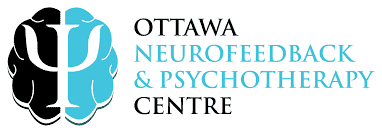Attention Deficit Hyperactivity Disorder (ADHD) is a neurodevelopmental disorder that affects individuals across various stages of life, presenting challenges in both personal and professional spheres. Despite significant advancements in understanding and treatment, there remains a pervasive stigma surrounding ADHD, often leading to misconceptions and barriers to acceptance and support. In this article, let’s explore ADHD, its impact on individuals, and strategies for challenging the stigma associated with it, particularly in the context of society and the workplace.
Understanding Attention Deficit Hyperactivity Disorder
ADHD manifests through a combination of symptoms, including inattention, hyperactivity, and impulsivity. These symptoms can significantly interfere with daily functioning, affecting academic performance, social interactions, and work productivity. Diagnosing ADHD involves a thorough assessment of symptoms and their impact on various aspects of life, considering criteria outlined in diagnostic manuals such as the DSM-5.
The Challenges Of Diagnosis And Treatment
One of the primary challenges associated with Attention Deficit Hyperactivity Disorder is the variability in symptom presentation and the overlap with other mental health conditions, such as anxiety disorders and mood disorders. This complexity often complicates the diagnostic process, leading to underdiagnosis or misdiagnosis. However, early and accurate diagnosis is crucial for implementing effective interventions, which may include a combination of ADHD medications, behavior therapy, and accommodations tailored to individual needs.
Addressing Stigma In Society
The stigma surrounding Attention Deficit Hyperactivity Disorder is deeply entrenched in societal misconceptions and stereotypes, perpetuated by a lack of awareness and understanding. Individuals with ADHD often find themselves navigating a world where their neurodiversity is misunderstood and stigmatized, leading to pervasive judgment, discrimination, and marginalization across various social contexts.
At the heart of ADHD stigma lies a misunderstanding of the condition itself. It is commonly misconstrued as a mere lack of discipline or willpower, rather than being recognized as a neurodevelopmental disorder with biological underpinnings. This misconception fosters a culture where individuals with ADHD may be unfairly judged for behaviors that are beyond their control, such as difficulty in maintaining focus or impulsivity.
The consequences of Attention Deficit Hyperactivity Disorder stigma are far-reaching and profound. In educational settings, students with ADHD may encounter skepticism from teachers and peers regarding the validity of their diagnosis, leading to diminished academic expectations and opportunities. In the workplace, individuals with Attention Deficit Hyperactivity Disordermay face prejudice and discrimination, which can hinder their career advancement and professional fulfillment.
Moreover, the internalization of stigma can have detrimental effects on the mental health and well-being of individuals with ADHD. Persistent experiences of judgment and rejection may contribute to feelings of shame, inadequacy, and self-doubt. This can exacerbate symptoms of anxiety and depression, further complicating the management of the condition.
Challenging Attention Deficit Hyperactivity Disorderstigma requires a multifaceted approach that addresses both societal attitudes and individual perceptions. Education plays a pivotal role in dispelling myths and misconceptions surrounding ADHD, raising awareness about the biological basis of the disorder and its impact on daily functioning. By providing accurate information, we can foster greater understanding and empathy towards individuals with ADHD, promoting a culture of acceptance and inclusivity.
Advocacy efforts are equally important in challenging ADHD stigma. This involves amplifying the voices of individuals with ADHD and advocating for their rights and accommodations in various spheres of life, including education, employment, and healthcare. By advocating for policies that promote equitable access to resources and support services, we can create environments that empower individuals with ADHD to thrive and succeed.
Crucially, addressing ADHD stigma requires fostering empathy and acceptance towards neurodiversity. By recognizing the inherent value and strengths of individuals with Attention Deficit Hyperactivity Disorder, we can celebrate their unique perspectives and contributions to society. Embracing diversity in all its forms enriches our collective experience and promotes a more inclusive and compassionate world for everyone.
Empowering Individuals In The Workplace

In today’s rapidly evolving professional landscape, diversity and inclusion have become paramount considerations for organizations striving to foster innovation and drive success. Among the diverse array of talents and perspectives present in the modern workforce, individuals with Attention Deficit Hyperactivity Disorder bring unique strengths and insights that can contribute significantly to organizational goals. However, to fully harness the potential of these individuals, workplaces need to provide tailored support and accommodations that enable them to thrive.
The inclusion of individuals with ADHD in the workplace begins with understanding and appreciating the challenges they may face due to their neurodiversity. While ADHD can present obstacles related to organization, time management, and impulse control, it also brings valuable attributes such as creativity, adaptability, and a propensity for out-of-the-box thinking. Recognizing and leveraging these strengths is key to unlocking the full potential of individuals with ADHD in the workplace.
One of the most effective ways to empower individuals with Attention Deficit Hyperactivity Disorder is through the implementation of workplace accommodations tailored to their specific needs. These accommodations may include flexible work schedules, clear communication channels, and structured task management systems. Providing a supportive environment where individuals with ADHD feel valued and understood fosters a sense of belonging and encourages them to perform at their best.
Moreover, fostering a culture of inclusivity and acceptance is essential for creating an environment where individuals with ADHD can thrive. This involves promoting empathy and understanding among colleagues and managers, raising awareness about ADHD and its impact on workplace dynamics, and encouraging open dialogue about neurodiversity. By cultivating a culture that celebrates differences and embraces diverse ways of thinking and working, organizations can create a more inclusive and innovative workplace for all employees.
Training and education initiatives can also play a crucial role in empowering individuals with Attention Deficit Hyperactivity Disordern the workplace. Providing resources and workshops on topics such as time management, organization skills, and stress management can equip individuals with ADHD with the tools they need to overcome challenges and maximize their potential. Additionally, offering coaching or mentorship programs can provide personalized support and guidance to help individuals with ADHD navigate their professional roles effectively.
Incorporating assistive technologies and accommodations into the workplace can further enhance the productivity and success of individuals with ADHD. From task management apps to noise-canceling headphones, technology offers a wealth of tools that can help individuals with ADHD stay focused and organized in their work. By leveraging these tools and accommodations, organizations can create an environment where individuals with Attention Deficit Hyperactivity Disorder can thrive and contribute meaningfully to the team.
Final Thoughts
In wrapping up our discussion on challenging the stigma of ADHD in society and the workplace, it’s clear that understanding and acceptance are key. ADHD is more than just behavioral issues; it’s a condition that affects individuals deeply. By debunking myths and embracing differences, we can create a supportive environment where those with Attention Deficit Hyperactivity Disorder can thrive.
At Nuvista Mental Health, we specialize in helping individuals of all ages manage ADHD and provide ADHD medication alongside other mental disorders. Our team offers personalized care and evidence-based treatments to empower each person on their journey to success.
If you or someone you know is struggling with ADHD, contact us today. Let’s work together to create a brighter future.



